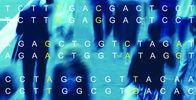The genes we’re dealt
By Erik Parens,
Aeon
| 11. 10. 2020
Over the past decade, economists, sociologists and psychologists have begun collaborating with geneticists to investigate how genomic differences among human beings are linked to differences in their behaviours and social outcomes. The insights sought are wide-ranging: why do some of us have a greater sense of subjective wellbeing than others? Why do some go further in school than others? When it comes to income, why do some people earn more and others less?
As surprising as it might be to readers familiar with the history of often-ugly efforts to investigate complex behaviours and outcomes through genetics, some prominent members of this new cohort of researchers are optimistic that their work will advance progressive political agendas. According to the progressive authors of a recent European Commission report, insights from what I call ‘social genomics’ are ‘fully compatible with agendas that aim to combat inequalities and that embrace diversity.’
Indeed, findings from social genomics are compatible with what we in the United States consider Left-leaning agendas to combat inequalities. They are, however, equally compatible with what we think of as Right-leaning...
Related Articles
By Scott Solomon, The MIT Press Reader | 02.12.2026
Chris Mason is a man in a hurry.
“Sometimes walking from the subway to the lab takes too long, so I’ll start running,” he told me over breakfast at a bistro near his home in Brooklyn on a crisp...
By Katrina Miller, The New York TImes | 02.05.2026
Joseph Yracheta: The Native Biodata Consortium is the first nonprofit data and sample repository within the geographic bounds and legal jurisdiction of an American Indian nation, on the Cheyenne River Sioux Reservation in Eagle Butte, S.D.
NativeBio participated in a ...
By David Jensen, California Stem Cell Report | 02.10.2026
Touchy issues involving accusations that California’s $12 billion gene and stem cell research agency is pushing aside “good science” in favor of new priorities and preferences will be aired again in late March at a public meeting in Sacramento.
The...
By Lauren Hammer Breslow and Vanessa Smith, Bill of Health | 01.28.2026
On Jan. 24, 2026, the New York Times reported that DNA sequences contributed by children and families to support a federal effort to understand adolescent brain development were later co-opted by other researchers and used to publish “race science”...




